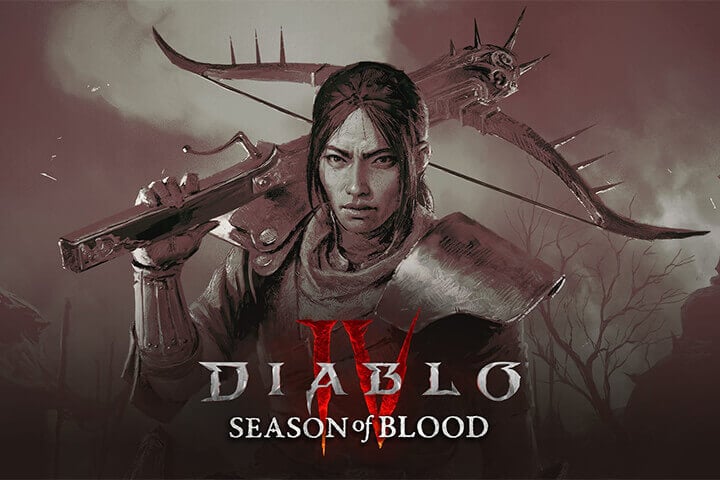The gaming industry has transformed from a niche hobby to a global powerhouse, generating billions of dollars in revenue and providing a multitude of investment opportunities. From game development studios to gaming marketplaces, the landscape is ripe for both individual and institutional investors. In this article, we’ll focus on what investors should know about gaming marketplaces, especially in the context of crowdfunding and digital assets. Understanding the market numbers, trends, and platforms like Gameflip will help potential investors make more informed decisions before diving into this lucrative industry.
The Gaming Market by the Numbers
To fully understand the potential of investing in gaming marketplaces, it’s important to grasp the sheer size and growth trajectory of the gaming industry. As of 2022, the worldwide gaming market was estimated to reach a staggering $184.4 billion in revenue, with mobile gaming alone contributing $92.2 billion to the total. By 2024, the video games market is projected to reach $282.30 billion in revenue, growing at an annual rate of 8.76%. This would push the market volume to $363.20 billion by 2027.
In terms of user growth, the number of gamers is expected to hit 1.472 billion by 2027, with user penetration increasing from 16.9% in 2024 to 18.5% by 2027. Notably, in-game advertising holds the largest segment in this market, projected to generate $109.60 billion in 2024 alone. In a global comparison, China is the largest revenue generator, with a projected market size of $94.49 billion in 2024.
These numbers reflect a thriving market with significant growth potential, making it a prime area for investment. In particular, investing in gaming marketplaces offers a unique opportunity to tap into the rising demand for in-game assets, digital goods, and transactions that enhance the player experience.
The Rise of Gaming Marketplaces
Today’s games are no longer self-contained experiences. Instead, they foster connectivity and community, driving economic demand for in-game assets. A key driver of this shift is the rise of gaming marketplaces, where players can buy, sell, and trade digital goods such as skins, weapons, or collectibles. These marketplaces, often powered by crowdfunding and other investment models, allow gamers to enhance their in-game experiences while creating a thriving economy around digital assets.
One of the standout platforms in this space is Gameflip, which provides a secure environment for players to transact digital gaming items. Gameflip has established itself as a leader by allowing gamers to trade in-game assets for real-world value, effectively creating a marketplace where digital goods have tangible worth. According to Statista, 29% of U.S. adults aged 18 to 29 spend one to five hours per week playing video games, while 21% of that same age group play six to 10 hours a week. These figures show that younger generations are deeply engaged in gaming, and as a result, demand for digital goods is growing rapidly.
As Benzinga writer Caleb Naysmith highlighted, Gameflip’s entry into the digital asset market allows gamers to monetize assets that were once siloed within individual games. This trend shows no signs of slowing down, especially as free-to-play games (which generate revenue through microtransactions) continue to dominate the industry. According to a report, 82% of American gamers have made in-game purchases in free-to-play titles, underscoring the enormous potential of gaming marketplaces like Gameflip.
Crowdfunding and Gaming Marketplaces: A New Frontier
Crowdfunding has long been a tool for startups to raise capital, and the gaming industry has fully embraced it. In fact, crowdfunding in the gaming industry has enabled the development of many successful games and platforms. Crowdfunding allows developers and marketplace creators to bypass traditional investors and appeal directly to their target audience. By securing funding from the community, gaming marketplaces can scale more quickly and with a greater understanding of what their user base wants.
For investors, understanding crowdfunding platforms and trends is key to evaluating opportunities in gaming marketplaces. Crowdfunding platforms like StartEngine and Kickstarter provide a transparent view of projects, allowing investors to assess the viability and market potential of emerging platforms. Additionally, platforms like StartEngine focus on equity crowdfunding, allowing investors to receive shares in the company they are backing. This model is particularly relevant for digital platforms and gaming marketplaces, where the need for innovation and scalability is high.
Epic Games and StartEngine: A New Opportunity for Investors
A notable case of how crowdfunding has influenced the gaming industry involves Epic Games. Famous for its hit titles like Fortnite, Epic Games leveraged crowdfunding through StartEngine to raise additional capital via a unique structure called the “Series Epic Games.” While Epic Games itself was not directly involved in the offering, investors could purchase membership interests in a series created to hold shares of Epic Games.
After Epic Games’ legal win against Google, a new series was created on StartEngine to allow accredited investors to purchase shares. The demand was immense, with the offering selling out twice and a final batch of shares being opened for a limited time. Investors who participated in this offering did not directly own shares in Epic Games; rather, they acquired membership interests in Series Epic Games, a series under StartEngine Private LLC, which indirectly holds shares in Epic Games.
This example illustrates how equity crowdfunding can provide investors access to private companies they might not have been able to invest in otherwise. It also highlights the increasing role of platforms like StartEngine in making high-profile gaming companies accessible to a broader range of investors.
While investing in these types of offerings comes with risks—such as illiquidity and the possibility of losing the entire investment—it presents a unique way for investors to gain exposure to major players in the gaming industry. Investors should carefully consider the risks and rewards, as well as review all offering documents before making a decision.
Famous Crowdfunding Success Stories in Gaming
Several successful games and platforms have emerged from crowdfunding, offering valuable case studies for investors. Some of these projects not only achieved their initial funding goals but went on to revolutionize the gaming industry.
Star Citizen
Star Citizen is one of the most ambitious and well-known examples of crowdfunding success in the gaming world. The space exploration and trading game raised over $500 million from more than 4 million backers through its ongoing crowdfunding campaign. Star Citizen’s innovative approach to player engagement and its expansive world-building have created an engaged community that continues to fund its development. This success is a testament to the power of crowdfunding in creating large-scale gaming experiences.Shovel Knight
Developed by Yacht Club Games, Shovel Knight began as a crowdfunded project on Kickstarter, raising over $300,000 from eager backers. The game went on to become a beloved indie platformer, celebrated for its retro design and gameplay mechanics. Shovel Knight’s success highlights how smaller developers can leverage crowdfunding to bring creative, high-quality games to market.Epic Games
As discussed earlier, Epic Games leveraged StartEngine’s equity crowdfunding platform to allow accredited investors to gain exposure to one of the biggest names in the gaming industry. This case represents how even established companies can use crowdfunding as a tool to raise additional capital and engage with investors in new ways.
Factors Investors Should Consider Before Investing in Gaming Marketplaces
As with any investment, there are important factors to consider when evaluating opportunities in gaming marketplaces.
Market Size and Growth Potential
As mentioned earlier, the gaming industry is set to grow significantly in the coming years, with the global market projected to reach $363.20 billion by 2027. Investors should pay close attention to which market segments are driving this growth. In-game advertising, for example, is expected to be the largest segment, while the mobile gaming sector continues to expand rapidly.Platform Security and Trust
In the world of digital assets and gaming marketplaces, security is paramount. Investors should look for platforms that offer a safe and secure environment for users to trade digital goods. Companies like Gameflip have built their reputation on providing such security, ensuring that users feel confident when buying or selling assets. Trust is key in gaming marketplaces, as users want assurance that their transactions are legitimate and that they will receive the goods they pay for.The Role of Crowdfunding
Crowdfunding plays an essential role in the development of gaming marketplaces, especially for smaller startups looking to scale. By examining the types of crowdfunding used, investors can gauge the commitment of a platform’s community. Platforms that utilize equity crowdfunding give investors the opportunity to own a portion of the company, which can lead to long-term gains if the marketplace thrives. Additionally, platforms that focus on rewards-based crowdfunding often foster a loyal user base, as backers feel a personal connection to the platform’s success.Risks and Rewards
Like any investment, investing in gaming marketplaces carries risks. Crowdfunding projects are not guaranteed to succeed, and the competitive nature of the gaming industry means that not all marketplaces will thrive. However, for those who do succeed, the rewards can be substantial. Understanding the balance of risk and reward is key to making informed decisions about where to allocate capital.
The gaming industry’s rapid growth, combined with the rise of digital assets and gaming marketplaces, presents a unique investment opportunity. For investors interested in tapping into this market, understanding the role of crowdfunding, the potential of platforms like Gameflip, and the industry’s economic outlook is essential. As demand for in-game items and digital assets continues to rise, investing in gaming marketplaces could yield significant returns for those who do their homework and understand the trends shaping the future of gaming.
Featured photo by Austin Distel @ Unsplash



